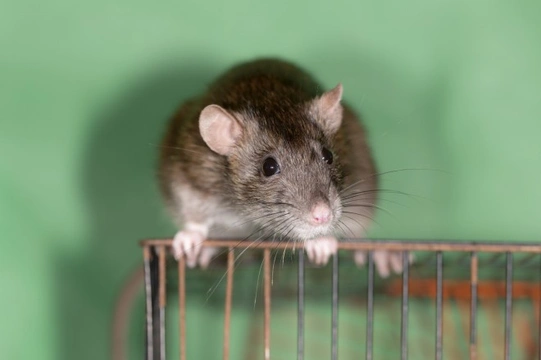
Creating a basic first aid kit for rats and other small caged pets
Regardless of the size of your pet, be it a horse or pony or a small caged animal like the rat, it is important to be prepared both mentally and practically for what might happen in an emergency, if your pet became injured or suddenly got ill. This is particularly the case for small caged pets such as rats, which are actually rather fragile animals and for whom a specialist vet, rather than your local all-purpose clinic, may be needed to help you to treat problems.
It is important that if your pet rat became injured or suddenly sick, you would be prepared to take care of them during the first stages, until you can get them to a vet that can help. This means having a specially designed rat first aid kit to hand, as well as a plan of how to proceed if you need help.
In this article, we will look at what you should have in your first aid kit to help you to care for your pet rat, plus investigate some of the scenarios that may arise if things go wrong.
What kind of problems might your rat fall victim to?
Some of the most common accidents and incidents that can affect pet rats are listed below:
- Accidents in play or when being handled, such as being dropped, crushed, or trapping a paw or tail.
- Wounds and injuries caused by fighting with another rat, or injuring themselves on the cage.
- Poisoning due to eating something that they shouldn’t, such as a toxic plant, or alcohol.
- Choking on a large piece of food or a foreign body.
- Electrocution, such as may occur due to chewing through electrical cables.
- Drowning in standing water.
- Sudden health issues such as a stroke.
How to prepare
Making up a first aid kit is an important part of caring for your rat, but equally important is knowing what to do in an emergency, and keeping calm. Having a plan of action and some familiar steps to follow can help with this.
Here are the ways in which you should do the background preparation in readiness for a potential rat emergency.
- Get yourself a basic book on rat anatomy and first aid, and learn as much as possible about your rat and how they work! Read the book, and keep it handy for reference in an emergency.
- Find a vet that can and will treat your rat; your local practice should be your first port of call, so it is important to find out if they are equipped and experienced in treating small animals such as rats.
- Have a suitable rat carrier, contact details for your vet and your rat first aid kit all stored together, somewhere that you will remember where to find them without having to dig through a cupboard!
- Make up your first aid kit, and check it regularly to make sure that all of the articles within it are in date and fit for use.
What should be in your rat first aid kit?
Exactly what goes into your first aid kit is for you to decide, but every rat owner should keep some basics, and know how to use them in an emergency. Your rat carrier can be a handy box for your first aid kit, and this has the added advantage of literally holding everything you will need in the one place ready to go.
The bottom of your carrier should be lined with some newspaper to absorb any fluids, and some soft bedding such as a sheet of Vetbed cut to fit the bottom of the carrier. Try to use light coloured bedding within the carrier, as this will make it easier to see any blood of fluids.
You should also keep some towels or a snuggly blanket with the kit, as a rat that is injured or ill may go into shock, and keeping them warm and comfortable is vital.
Other things you should have in your kit include:
- A small pair of scissors.
- Some nail clippers.
- Tweezers.
- Cotton buds.
- Cotton wool.
- Sterile melolin dressings.
- Small bandages.
- Saline eye drops, which should be sealed and sterile.
- Styptic powder to stop minor bleeds.
- Cleansing wipes and gel.
- Hibiscrub to disinfect your hands and tools.
Preventing problems from arising
Having a first aid kit and a plan for if you need to use it is vital, but prevention is of course better than a cure! Many emergencies and accidents that may face your rat can be avoided entirely, and so it is worth reviewing your rat’s accommodation, where you let them out of the cage, and how you handle them in an attempt to avoid problems.
Learn from near misses, such as your rat catching their paw in the wire of their cage, or chewing at wires; you will need to change things that may injure your rat, to prevent later problems. Take care over how and where you handle your rat, and never put off making positive changes that may help to keep your pet safe.



